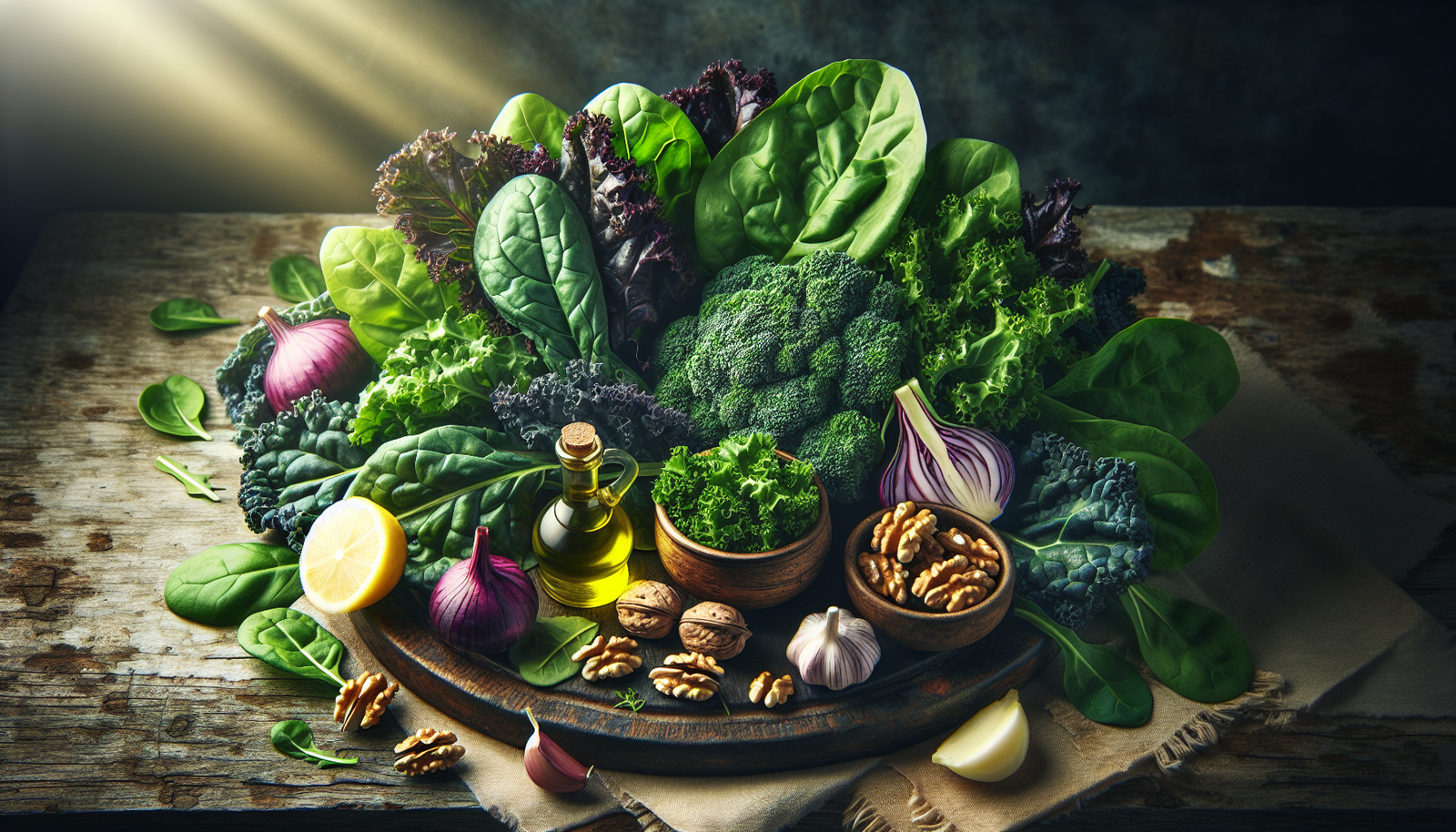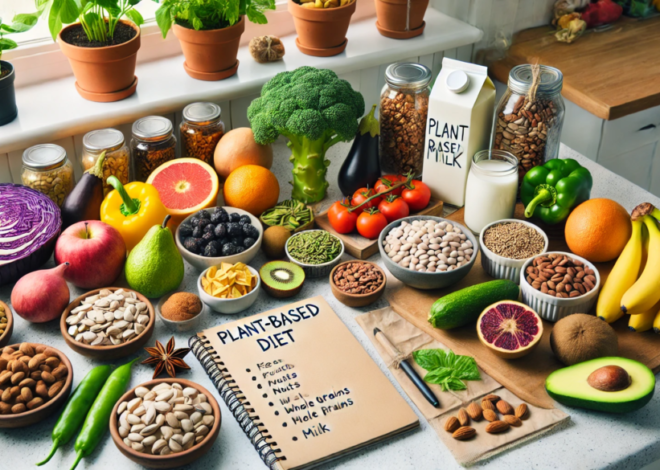
How Leafy Greens Help Fight Inflammation
Leafy greens for inflammation are powerful allies in promoting health and wellness. Packed with essential nutrients and antioxidants, these greens can significantly reduce inflammation, a common root of many ailments. A study shows that diets rich in leafy greens can lower the risk of chronic diseases by 20%. This post explores how consuming kale, spinach, and collard greens can combat inflammation by supporting the immune system and enhancing gut health. Discover easy ways to incorporate these nutrient-dense vegetables into your daily meals and unlock their anti-inflammatory benefits. Dive into the science-backed benefits of leafy greens and transform your diet into a healing regimen.
Understanding Inflammation and Its Impact on Health
Inflammation is a double-edged sword in the realm of health. It serves as an essential defense mechanism, yet it can lead to significant health issues when chronic. Understanding its roots and the risks involved is crucial in managing it effectively.
What Is Inflammation and Why Does It Occur?
Inflammation is the body’s natural response to injury or infection. When the immune system senses danger, it triggers an inflammatory response to protect and heal the affected area. This involves the release of chemicals that increase blood flow and attract white blood cells. While beneficial initially, prolonged inflammation can harm tissues, leading to various health problems. Common causes include infections, injuries, autoimmune diseases, and long-term exposure to irritants, such as pollutants or unhealthy foods.
The Role of Diet in Managing Inflammation
Diet plays a powerful role in managing inflammation. Certain foods can provoke inflammatory responses, while others have calming effects. A diet rich in fruits, vegetables, whole grains, and healthy fats can help reduce inflammation. These foods contain nutrients that support the immune system and help prevent tissue damage. On the other hand, processed foods, sugary drinks, and red meats can increase inflammation due to their high levels of unhealthy fats and sugars.
Long-term Health Risks of Chronic Inflammation
Chronic inflammation poses serious long-term health risks. It’s linked to diseases such as heart disease, diabetes, cancer, and arthritis. Persistent inflammation can damage blood vessels, increase plaque buildup, and lead to insulin resistance. Understanding these risks underscores the importance of lifestyle changes, including dietary adjustments, to mitigate chronic inflammation and improve overall health.
Nutritional Benefits of Leafy Greens in Combating Inflammation
Leafy greens are more than just a salad staple; they are potent allies in the fight against inflammation. Packed with nutrients and unique compounds, these greens offer significant health benefits. Let’s explore how they work to combat inflammation.
Anti-inflammatory Compounds Found in Leafy Greens
Leafy greens contain a variety of anti-inflammatory compounds that help reduce inflammation in the body. These include flavonoids, carotenoids, and polyphenols, which work together to neutralize harmful free radicals. By reducing oxidative stress, these compounds help lower the risk of chronic inflammation and related diseases.
Essential Vitamins and Minerals in Leafy Vegetables
Leafy greens are rich in essential vitamins and minerals that support overall health. They are excellent sources of vitamins A, C, and K, folate, and iron. These nutrients play crucial roles in immune function, bone health, and red blood cell production. Including a variety of leafy greens in your diet ensures a steady supply of these vital nutrients, enhancing your body’s ability to fight inflammation.
How Antioxidants in Leafy Greens Reduce Inflammatory Responses
Antioxidants found in leafy greens, such as vitamin C, vitamin E, and beta-carotene, play a key role in reducing inflammatory responses. They protect cells from damage caused by free radicals and support the body’s natural healing processes. By maintaining cellular integrity, these antioxidants help prevent the onset of inflammation and chronic diseases, making leafy greens a valuable addition to an anti-inflammatory diet.
Best Leafy Greens for Reducing Inflammation
Not all leafy greens are created equal when it comes to fighting inflammation. Some stand out for their exceptional nutrient profiles and anti-inflammatory properties. Discover which greens should be staples in your diet to help keep inflammation at bay.
Kale and Its Anti-inflammatory Properties
Kale is a nutritional powerhouse recognized for its anti-inflammatory properties. It contains high levels of vitamins A, C, and K, as well as omega-3 fatty acids, which are known to reduce inflammation. The presence of quercetin and kaempferol, two powerful antioxidants, further enhances kale’s ability to combat inflammation. Regularly incorporating kale into your meals can help manage inflammatory conditions and improve overall health.
Spinach: A Nutritious Choice for Inflammation Reduction
Spinach is another leafy green that offers excellent anti-inflammatory benefits. It is loaded with vitamins, minerals, and antioxidants that work synergistically to reduce inflammation. Rich in magnesium, spinach helps regulate inflammatory processes and supports muscle and nerve function. Its high content of flavonoids and carotenoids makes spinach a smart choice for those looking to minimize inflammation.
Incorporating Swiss Chard for Inflammation Control
Swiss chard is an often-overlooked leafy green with impressive anti-inflammatory properties. It is packed with vitamins A, C, and E, as well as magnesium and potassium, which are crucial for reducing inflammation. Swiss chard also contains unique phytonutrients, such as betalains, that have demonstrated anti-inflammatory effects. Adding Swiss chard to your diet can help support inflammation control and promote overall well-being.
Conclusion
Leafy greens like spinach, kale, and collard greens contain anti-inflammatory compounds such as vitamins A, C, and K. These greens are rich in antioxidants that help reduce inflammation in the body. They also have high fiber content which supports gut health and further minimizes inflammation. The presence of polyphenols in leafy greens contributes to their anti-inflammatory effects. Incorporating these greens into a balanced diet can aid in managing and preventing chronic inflammation-related conditions.
FAQ
What are the best leafy greens for reducing inflammation?
Spinach, kale, and Swiss chard are known for their anti-inflammatory properties. Arugula, collard greens, and bok choy also rank high due to their rich nutrient profiles. These greens are packed with antioxidants and essential vitamins, which play a key role in reducing inflammation.
How do leafy greens help combat inflammation?
Leafy greens contain antioxidants, vitamins, and minerals that help neutralize free radicals in the body. This process reduces oxidative stress and inflammation. Nutrients like vitamin K, vitamin C, and omega-3 fatty acids present in these greens contribute significantly to their inflammation-fighting abilities.
Can consuming leafy greens improve symptoms of chronic inflammation?
Regularly eating leafy greens can alleviate symptoms of chronic inflammation. Their high levels of anti-inflammatory compounds like polyphenols and flavonoids bolster the body’s immune response. This dietary habit can lead to a noticeable improvement in conditions like arthritis and heart disease.
What nutrients in leafy greens contribute to anti-inflammatory health benefits?
Nutrients like vitamin K, vitamin C, omega-3 fatty acids, and magnesium are pivotal in leafy greens. These nutrients help reduce inflammation by regulating immune system responses. Antioxidants such as beta-carotene and lutein also contribute to their soothing effects on inflammatory pathways.
How often should I eat leafy greens to manage inflammation effectively?
Incorporating leafy greens into your diet daily is ideal for managing inflammation. Aim for at least one to two servings a day. This consistent intake helps maintain optimal nutrient levels, supporting ongoing anti-inflammatory benefits.
Are there any specific recipes using leafy greens that target inflammation?
Try a kale salad with walnuts and cranberries for a tasty anti-inflammatory dish. Green smoothies with spinach, banana, and flaxseeds also offer a powerful nutrient boost. Sautéed Swiss chard with garlic and olive oil makes a quick, inflammation-fighting side dish.











